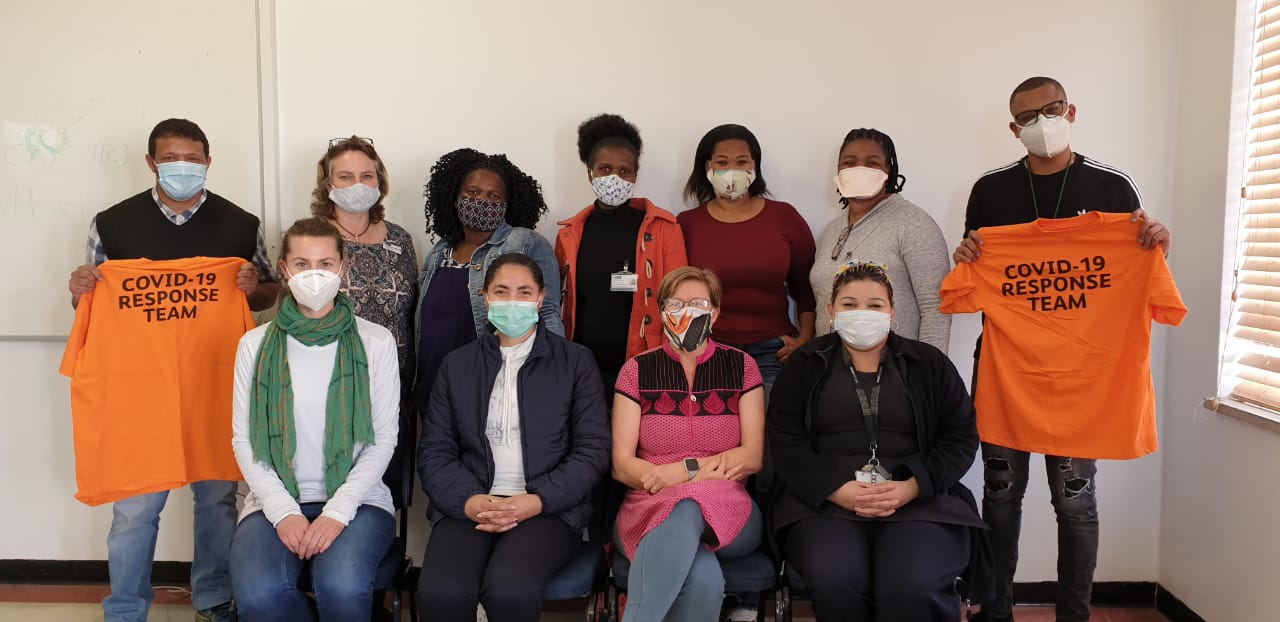
News
Covid-19 contact tracing team’s message of support
A contact tracing team is often the first healthcare team to support someone who tested positive for COVID-19. Contact tracing teams consist of healthcare workers across all fields, as well as community volunteers and NGO partners.
Knysna’s contact tracing team has been on the forefront of the pandemic since the very first case in March. This team has spent many hours ensuring that each person who tests positive is contacted and given the diagnosis personally, over the phone by their case manager. If they can’t be reached, someone is sent to their house.
“COVID-19 is an unprecedented global health crisis, and yet, when patients test positive, they need so much more than health care. They need the personal touch. In March, with our first few cases, we made sure to visit all positive patients and give them their diagnosis personally. It was an important message: you are infected, but not rejected,” says team leader Dr Laurel Giddy.
After the initial personal visit, patients and their contacts are followed up telephonically until the end of their quarantine period. This practice was continued until June, when their numbers became impossible to visit each patient personally. Services became all telephonically based.
One might wonder exactly what a contact tracer does. Firstly, all COVID-19 tests are entered on a spreadsheet and the results are checked daily by a team member and those who test positive are identified. A case manager is assigned to each patient and a contact tracing document is generated. The purpose of contact tracing is to educate, support and to stop further spread. In the initial call, the patient is educated on what COVID-19 is, how it is spread, and what quarantine or isolation entails. The case manager enquires whether home quarantine or isolation will be possible, and checks the health status of the rest of the household. The patient is screened for symptoms and any health problems that might contribute to a poor outcome. They are given a safety net, and told who to call and what to say should they experience worsening symptoms. The case manager finds out if the person is working and gets workplace details and contacts. Food security is explored and a food parcel is arranged for the household if necessary.
Patients who are unable to quarantine or isolate at home are referred to the quarantine or isolation facility. The case manager elicits any close contacts who will need to be contacted, informed and counselled. These contacts may be in the household or outside the household. The close contacts are screened in a similar way. Close contacts are contacted telephonically throughout quarantine, and tested only if they become symptomatic. The workplace is contacted, and sometimes the workplace team does on-site visits for education and screening. This can be a big project, with more than 100 individuals screened in a big workplace. If the patient or household contacts need sick certificates, these are generated and forwarded to them, usually via WhatsApp. If necessary, the team will engage with bosses or managers.
If the patient is admitted to a facility or dies of COVID-19, the Contact Tracing team provides practical and emotional support. There are specific procedures that must be followed and families need a lot of support during this time. The contact tracing service include patients who test positive in the private sector.
“Being part of this team has been a growth experience for all of us. We have learned how to trust, appreciate and rely on our fellow team members, how to educate ourselves on COVID-19, and then use that knowledge to educate others. We have learned how to communicate, support and persuade others to curtail the spread of this virus, how to reassure, calm and support patients and their families, how to pace ourselves and look after ourselves during this long journey and all about human behavior and their response to fear and anxiety. COVID-19 has changed the face of the world, and our team has met this challenge head on and with excellent results. I am so proud of every member! Each one of us has grown personally and professionally and showed that dedication and hard work can change the course of a pandemic. We can do it. Masks, hand washing and social distancing can keep us safe and united,” says Dr Giddy.
Western Cape Government Health wishes to thank all our contact tracing teams for their dedication, passion, and immense contribution during the COVID-19 pandemic.
Nadia Ferreira
Principal Communications Officer
Garden Route and Central Karoo Districts
Western Cape Government Health
Tel: 076 379 5423
Email: Nadia.Ferreira@westerncape.gov.za
Website: www.westerncape.gov.za


